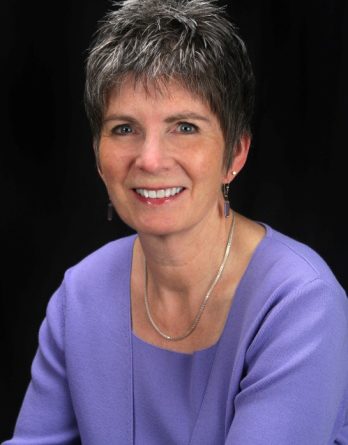When Child Abuse Comes to Church by Morven Baker
 Quietly sobbing on the other end of the phone, the young pastor finally felt safe enough to let go of the torrent of emotions that were overwhelming him. This was his first assignment as the senior pastor in a small church which sat on the edge of a large urban community, and he had been thrown into a royal mess.
Quietly sobbing on the other end of the phone, the young pastor finally felt safe enough to let go of the torrent of emotions that were overwhelming him. This was his first assignment as the senior pastor in a small church which sat on the edge of a large urban community, and he had been thrown into a royal mess.
With only a few weeks of preparation, this gentle man had been made aware that his new congregation was reeling from the effects of child sexual abuse within their congregation. These church members had been devastated to learn that several of their precious little ones had been repeatedly molested over a long period of time by someone they all had trusted implicitly: their own pastor.
Child abuse by a stranger can be traumatic, but when the offender is someone you have grown to love like family, or who is actual family, the effects can be even more devastating. Possibly the best visual would be to picture a tsunami bringing a wave out of nowhere, a wall of raging water that completely knocks you flat to the ground, destroying almost everything you own in its wake.
Everyone is impacted by the results of this tsunami called child abuse. The little victims are confused and traumatized, each handling the abuse in their own way. Some are withdrawn and silent. Others are also acting out of character, but are displaying this by bouncing off the walls with uncontrolled anxiety. Most of them are unable to put into words something that is developmentally almost impossible to explain. This is especially true if their little bodies have “betrayed” them and have experienced pleasure during an event they were repulsed by. All they know is shame, the feeling that comes when someone says or does something to them that makes them feel that they are bad. They have been made to feel guilty, possibly because their offender has told them that this happened because of something they were responsible for.
The parents are metaphorically lying flat in the sand after this tsunami, trying desperately to find their footing so they can search for their lost children, wanting to take them to a place of safety. Their emotions are myriad. Initially, after they stumble out of the shock, they are understandably angry and reactive. How could someone – that “someone” especially – do this terrible thing to their child? Then the confusion hits them, when they try to make sense of it all and begin to question the possibility that their child might be misinterpreting something or had read something, anything but the truth of what has happened. After all, this person was someone who had been to their home, had sat at their table, who had held them as he comforted them over the loss of a family member, and who had prayed with them. This was someone they had trusted.
The congregation is whispering among themselves, feeling many of the same emotions being experienced by the parents. After talking with their own children and learning that they were not victims of abuse, their natural response of relief makes them feel guilty. Why was their child spared? Are they bad people that they feel grateful because their child was not one of the ones who had been offended? Like many people feel after the death of someone they know, they don’t know how to respond. Should I say something? What do I say? Will it help to bring them a casserole? They may talk about this among themselves, but are completely uncertain as to how to show support for the little victims and their families, especially if there is the smallest doubt that the abuses actually happened. After all, this is a child making the allegations and the person they are accusing is the man they trust above all others.
Although it may take years for the victims to be able to put it all into words, eventually the largest wave of this tsunami that everyone will experience, one that will wash over them time and time again, will be the feeling of betrayal. Not only had this pastor been someone they had trusted implicitly, this person had represented God to them. Every Sunday, as he stood in the pulpit and preached out of the Word, this man had been, to them, the hands and feet of Jesus. They had listened to him and welcomed his teachings. They had tried to emulate him in their daily walk as he, so they had thought, had emulated their crucified savior. They had loved coming into their church building, a facility that most knew intimately from gatherings to celebrate family events, mission activities and every opportunity to be with church family. However, this was more than the building being violated.This pastor and his office had represented a “safe place” to them and this was now gone – completely washed away.
The non-church community feels the effects as well. “Just goes to show that they are just a bunch of hypocrites.” “I always knew that this religion stuff was messed up.” Any testimony that this little tribe of believers had in their community has been terribly shaken and it will take years of rebuilding, if it is able to be rebuilt at all. Who in their right mind would ever send their child to daily Vacation Bible School in a place where they knew children had been molested? Who would want to be married in the church that was infamous for the abuse of children?
Sadly, the above story is all too common. There seems to be a new report in the public media at least weekly of an Evangelical pastor who has abused the trust he has been given and has molested either a child, teenager or an adult in his parish. The abuse by clergy is so prolific that a website called www.thehopeofsurvivors.com caters specifically to those who have been wounded by pastoral staff, and is a great resource for those who are helping their parishioners heal.
Imagine you are the pastor who has been given the assignment of tending to this wounded church. Where would you begin? Reading many of the texts available on ministering to sexual abuse survivors would be a good place to start, but it is critical that your church has a Safe Sanctuary Policy in place, that it is enforced, and that there is accountability with all staff members. No one is exempt. Be certain that the pastor they loved, and still may feel loyal to, is not seen as the victim here. The children are the victims.
Feelings of helplessness and being overwhelmed are common among those who minister to survivors, and you must be aware of your own limitations. You are also impacted by this tsunami. You may not have been swept up in the water alongside those people in your new church, but you were on the balcony in the building overlooking the scene. You are seeing the bodies washed up and are questioning your ability to help.
You need a team to bring healing to this congregation. You may not have the counseling tools needed, but you can find good therapists in your area whom you can refer to, ones that may be willing to do some group work within your church building. Perhaps one of them can do a workshop on healing from abuse on a Saturday morning. Your job is to listen and to be there. By the gift of presence you are helping them heal their image of God that has been so painfully harmed. Talk about grief and heartache from the pulpit. Be willing to discuss the hard stuff. Come alongside, just as Jesus did.
Specializing in the recovery of Sexual Abuse and Domestic Abuse, Dr. Morven R. Baker (D.Min., LPCC) has over 30 years of counseling experience in private practice. She has been an adjunct professor at Ashland Seminary and continues to give workshops within the United States and abroad. She co-authored More Light on the Path with Drs. Elaine Heath and David W. Baker, and is published in The Long Journey Home: Understanding & Ministering to the Sexually Abused, edited by Dr. Andrew Schmutzer. In semi-retirement, she has found herself ministering to pastors and congregants where sexual abuse has come to their church.

